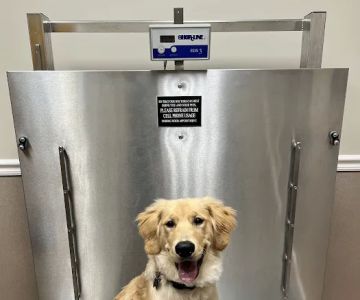What is the Difference Between a Veterinary Clinic and Hospital?
As pet owners, we all want the best care for our furry companions, but sometimes it can be confusing to decide between a veterinary clinic and a veterinary hospital. Both options offer services to keep our pets healthy, but they differ in the level of care, range of services, and available facilities. In this article, I'll walk you through the key differences between a veterinary clinic and a hospital, share some real-life examples, and provide tips on when to visit each one. By the end, you'll feel more confident in choosing the right place for your pet’s needs.
1. Understanding Veterinary Clinics
Veterinary clinics are smaller medical practices that focus on providing routine care and preventive services. They are typically run by one or more veterinarians and offer a limited range of services. For example, my own experience with our local veterinary clinic has been mainly for regular check-ups, vaccinations, flea treatments, and minor illnesses. These clinics are great for ongoing health maintenance and general care.
1.1 Basic Services
Veterinary clinics are ideal for routine care like vaccinations, microchipping, dental cleanings, and spaying or neutering. They provide basic diagnostic services such as blood tests, urine analysis, and X-rays. However, the equipment and services available at a clinic are typically more limited compared to a full-scale hospital.
1.2 Cost-Effective Option
From my experience, veterinary clinics are generally more affordable than hospitals. This makes them a great option for regular check-ups or when your pet is experiencing minor health issues. You can expect lower consultation fees, and since clinics are typically smaller, the overhead costs are often reduced. If your pet needs preventive care or basic treatment, a veterinary clinic is usually the best choice.
2. Understanding Veterinary Hospitals
On the other hand, a veterinary hospital is a much larger, more comprehensive facility that offers a broader range of services. Unlike a clinic, which might only have a few veterinarians, hospitals are often staffed with specialists and provide more advanced medical care. In the past, when my dog suffered a serious injury, we had to take him to a veterinary hospital for surgery and 24/7 care. That experience made me realize just how crucial it is to understand when a hospital is necessary.
2.1 Advanced Medical Services
Veterinary hospitals offer emergency care, surgery, and more specialized treatments like oncology, cardiology, and orthopedics. They have advanced diagnostic tools, such as MRI machines, CT scanners, and ultrasound, which are essential for diagnosing and treating complex conditions. For example, when my cat developed a serious heart condition, the hospital’s cardiologist was able to conduct specialized tests and offer tailored treatment plans that wouldn’t have been possible at a clinic.
2.2 24/7 Care and Emergency Services
One significant difference I noticed when visiting a veterinary hospital is the availability of 24/7 emergency services. Unlike a clinic that might only operate during regular business hours, veterinary hospitals are equipped to handle urgent situations, even in the middle of the night. This level of care is crucial in emergencies such as accidents, severe illnesses, or post-surgery monitoring. The hospital setting ensures that your pet receives the attention they need, no matter the time of day.
3. Key Differences Between a Veterinary Clinic and Hospital
Now that we've explored the basic characteristics of both veterinary clinics and hospitals, let’s summarize the key differences. These differences will help you decide which option is best for your pet based on their specific needs.
3.1 Size and Scope of Services
The most obvious difference between a clinic and a hospital is their size and scope of services. Veterinary clinics tend to be smaller, focusing on routine care and basic health issues, while veterinary hospitals are larger facilities offering a wider array of specialized services. If you need ongoing care for a healthy pet or minor issues, a clinic will often suffice. For more serious conditions or specialty care, a hospital is the place to go.
3.2 Availability of Specialists
Veterinary hospitals typically have specialists on hand, offering advanced care for conditions like cancer, orthopedic issues, and neurological diseases. My own experience has shown that hospitals are better equipped to handle complex or serious health conditions that require expertise beyond a general practitioner’s scope.
3.3 Cost Considerations
In general, veterinary hospitals are more expensive than clinics. This is because hospitals have more extensive facilities, specialized staff, and equipment that require higher operational costs. While a clinic can be a great choice for regular check-ups and preventive care, you should be prepared for higher costs if you need advanced services or emergency care at a hospital. I’ve found that understanding the type of service my pet requires has helped me choose the right facility without unnecessary costs.
4. When to Visit a Veterinary Clinic
Veterinary clinics are ideal for situations that involve routine care or minor health concerns. Here are some examples of when you should visit a veterinary clinic:
4.1 Regular Check-ups and Preventive Care
Routine check-ups, vaccinations, flea and tick treatments, and spaying or neutering are all best handled at a veterinary clinic. These services are typically affordable and sufficient for keeping your pet in good health. During these visits, your veterinarian will also assess your pet’s general well-being, detect any early signs of illness, and provide necessary treatments.
4.2 Minor Health Issues
For minor issues such as ear infections, allergies, or skin conditions, a veterinary clinic is an excellent choice. Clinics can quickly diagnose and treat these common problems without the need for specialized equipment or lengthy hospital stays. My dog had a mild ear infection once, and a quick visit to the clinic provided all the treatment he needed.
5. When to Visit a Veterinary Hospital
Veterinary hospitals are the go-to choice when you need advanced care, emergency services, or specialized treatment. Here are a few situations where a hospital is necessary:
5.1 Emergencies and Critical Care
If your pet has suffered a serious injury, is experiencing a medical emergency, or needs round-the-clock care, a veterinary hospital is equipped to handle these situations. I’ve been in a situation where my dog got injured, and the hospital was the only place that could provide the emergency care he needed.
5.2 Specialty Care for Complex Health Conditions
For conditions that require specialized treatment—such as cancer, heart disease, or neurological issues—veterinary hospitals are your best option. These hospitals have specialists who can diagnose and treat complex conditions that veterinary clinics might not be equipped to handle. I’ve seen firsthand how specialized care can make a significant difference in a pet’s recovery.
6. Finding the Right Care for Your Pet
Choosing between a veterinary clinic and hospital depends on your pet’s needs. If your pet is generally healthy and requires only routine care, a clinic is often a more affordable and convenient option. However, if your pet experiences a medical emergency or requires specialized treatment, a veterinary hospital is the best place to ensure they receive the highest level of care.
For me, having a trusted veterinary clinic for routine visits and knowing when to seek out a hospital for emergencies has made all the difference in ensuring my pet’s health. If you’re unsure where to take your pet, or if you need more information on veterinary services, [Hidden Brook Veterinary] is a great place to start. They offer expert advice and care to help guide you through your pet’s health journey.











